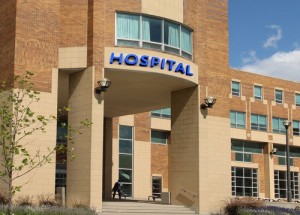 Nearly four years after the Federal Trade Commission (“FTC”) first challenged the combination of the only two hospitals in Albany, Georgia, the FTC, Phoebe Putney Health Systems, Inc. (“Phoebe Putney”), Hospital Authority of Albany – Dougherty County (“Hospital Authority”) and HCA, Inc. (“HCA”) agreed to enter into a Consent Agreement. The FTC’s vote finalizing the Consent Agreement was 3-0-2, with Commissioners Joshua D. Wright and Terrell McSweeny not participating. The Phoebe Putney litigation illustrates the challenges that the FTC and entities attempting to consummate a deal face in the merger process. In Phoebe Putney, the FTC lost in two federal lower courts, won at the U.S. Supreme Court but ultimately was unable to unscramble a hospital merger that was found to be (1) anti-competitive and (2) a monopoly for inpatient general acute-care.
Nearly four years after the Federal Trade Commission (“FTC”) first challenged the combination of the only two hospitals in Albany, Georgia, the FTC, Phoebe Putney Health Systems, Inc. (“Phoebe Putney”), Hospital Authority of Albany – Dougherty County (“Hospital Authority”) and HCA, Inc. (“HCA”) agreed to enter into a Consent Agreement. The FTC’s vote finalizing the Consent Agreement was 3-0-2, with Commissioners Joshua D. Wright and Terrell McSweeny not participating. The Phoebe Putney litigation illustrates the challenges that the FTC and entities attempting to consummate a deal face in the merger process. In Phoebe Putney, the FTC lost in two federal lower courts, won at the U.S. Supreme Court but ultimately was unable to unscramble a hospital merger that was found to be (1) anti-competitive and (2) a monopoly for inpatient general acute-care.
In addition to the Consent Agreement, a Statement was issued by Chairwoman Ramirez on March 31, 2015 summarizing the extensive procedural history of the litigation, the reasons the FTC challenged the merger, why the FTC did not require a divestiture and an explanation of the obligations that Phoebe Putney must meet under the Consent Agreement. The March 31st Statement may provide insights into the FTC’s strategies when challenging future hospital mergers. As explained below in the practice pointers, we anticipate the FTC citing Phoebe Putney in support of their preliminary injunctions and also citing to state certificate of need [CON] laws as evidence of barriers to entry for hospital competitors.
By way of background, since 1890 federal laws have supported national policies in favor of competition. In Parker v. Brown, a 1943 U.S. Supreme Court decision, the state action doctrine provided that state governments have immunity from federal antitrust laws when they authorize economic activity that normally would be anticompetitive and illegal. In 1941, Albany, Georgia and surrounding Dougherty County set up the Hospital Authority. The Hospital Authority acquired an existing hospital, Phoebe Putney Memorial Hospital. Two miles away Palmyra Medical Center was operated separately by HCA, Inc., one of the largest health care providers in the United States. Palmyra and Phoebe Putney merged with the Hospital Authority as the buyer of Palmyra with the funds coming from Phoebe Putney. Palmyra hospital was leased to Putney for $1 a year. The Hospital Authority approved the merger in December 2010 but was not involved in the merger talks or management of the hospital.
The FTC and the State of Georgia filed a preliminary injunction in federal court to block the transaction but the federal district judge held that the state action doctrine applied and refused to stop the merger. The FTC appealed to the 11th Circuit, which also found that the merger was insulated from antitrust inquiry under state action immunity concluding that harm to competition was the “foreseeable result” of the legislature’s establishment of the Hospital Authority.
The 11th Circuit decision dissolved the injunction pending appeal and on December 15, 2011 the merger was finalized. The FTC appealed the 11th Circuit’s decision to the U.S. Supreme Court. The two issues were: (1) whether the legislature had expressed its intentions clearly enough in allowing hospital proxies to operate in anti-competitive ways, and (2) whether the local hospital arrangement did not have immunity because the hospital authority had not played a large enough role in the merger.
The Supreme Court unanimously answered the first question, ruling that the state legislature had “not clearly articulated and affirmatively expressed a policy to allow hospital authorities to make acquisitions that substantially lessen competition.” Following the Supreme Court decision, the FTC proceeded with the administrative litigation and proposed a 2013 consent agreement. However, the 2013 consent agreement was withdrawn after a newly formed health care entity, North Albany Medical Center LLC, expressed interest in Palmyra hospital and sought clarification on Georgia’s CON laws.
In October 2014, the Georgia Department of Community Health (“DCH”) Hearing Officer issued a written finding that the CON laws would preclude Phoebe North from purchasing Palmyra since the Albany region was deemed “over-bedded.” Given the DCH’s decision, the FTC determined that divestiture of Palmyra – Phoebe Putney was impossible.
The March 31st Settlement is very similar to the one proposed in 2013. The Settlement requires:
- Phoebe Putney and the Hospital Authority to notify the FTC in advance of acquiring any part of a hospital or a controlling interest in other health care providers in Albany for the next 10 years.
- Phoebe Putney and the Hospital Authority cannot object to regulatory applications made by potential new hospital providers in the same region for 5 years.
- Phoebe Putney and the Hospital Authority stipulate that the transaction was anti-competitive.
Practice Points:
- The FTC’s March 31st Statement by Chairwoman Ramirez emphasizes the importance of the FTC and private plaintiffs in obtaining preliminary injunctive relief prior to a transaction closing. The health care industry should anticipate the FTC citing the Phoebe Putney case as supporting authority for why there will be irremediable harm if a hospital transaction closes before all appeals are exhausted.
- We also anticipate that the FTC will use the Phoebe Putney case in support of arguments that state CON laws are additional barriers for entry of potential competitors and should be significant factor when analyzing proposed mergers.
For further information contact the author Ryan P. Blaney (Washington, DC) or other members of Cozen O’Connor’s healthcare antitrust team, R. Christopher Raphaely (Philadelphia, PA), Melissa H. Maxman (Washington, DC) and Jonathan Grossman (Washington, DC).
About The Author
 Hospitals that have emergency departments should call upon their “available resources” to screen and stabilize patients with mental health emergencies as required by the Emergency Medical Treatment and Labor Act (“EMTALA”) according to recent statements by an analyst for CMS and an attorney with the Office of Inspector General (“OIG”) for the Department of Health and Human Services.
Hospitals that have emergency departments should call upon their “available resources” to screen and stabilize patients with mental health emergencies as required by the Emergency Medical Treatment and Labor Act (“EMTALA”) according to recent statements by an analyst for CMS and an attorney with the Office of Inspector General (“OIG”) for the Department of Health and Human Services.
 On July 23, 2015, the Third Circuit invalidated, as being contrary to the Medicare statute, the U.S. Department of Health and Human Services’ (HHS) Medicare wage index “reclassification rule,” 42 C.F.R. § 412.230(a)(5)(iii). That rule was designed to prevent (and did prevent) urban hospitals that had strategically reclassified as being rural from being reclassified again (based on their newly acquired rural status) to a particular urban area, to benefit from a higher Medicare standardized amount and wage index.
On July 23, 2015, the Third Circuit invalidated, as being contrary to the Medicare statute, the U.S. Department of Health and Human Services’ (HHS) Medicare wage index “reclassification rule,” 42 C.F.R. § 412.230(a)(5)(iii). That rule was designed to prevent (and did prevent) urban hospitals that had strategically reclassified as being rural from being reclassified again (based on their newly acquired rural status) to a particular urban area, to benefit from a higher Medicare standardized amount and wage index.



